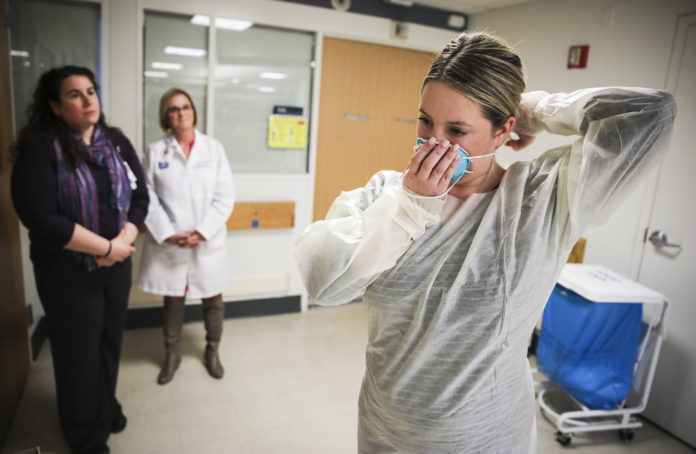Recently, new research conducted by Prof. Karen Ousey from the University of Huddersfield in the United Kingdom and colleagues examined the potential skin damage caused by the constant use of the face mask during COVID-19.
With the rise of the number of cases of coronavirus infection, there is also an increase in the pressure and stress levels in the hospitals amongst the health care workers including nurses, doctors, assistants, and others.
Though wearing masks is recommended to everyone in accordance with the instructions from the World Health Organization and other authorities, it is the health care experts who are more likely to experience the impact of constantly wearing masks on the skin especially in an extremely stressful environment and higher workload.
In order for the mask to be effective in the prevention of the virus, fitting is an essential factor. Therefore, places such as major business centers or hospitals have fitting sessions for masks prior to usage by the workers.
The fitting of the mask varies by person to person. However, it is important to make sure the mask is snuggly and properly fitted. It is normal to feel that the mask is a bit tight and uncomfortable as it an indicator of a good fitting.
Where this step is mandatory for maximum safety, wearing it during COVID-19 may lead to unwanted consequences. The new study, whose findings appear in the Journal of Wound Care, examines these effects.
Prof. Ousey explains in the words “The wearers are sweating underneath the masks, and this causes friction, leading to pressure damage on the nose and cheeks. There can be tears to the skin as a result, and these can lead to potential infection.”
In a typical hospital setting, the wounds caused by wearing face masks would be treated via dressing. However, the mask would no longer fit after dressing the wounds and all health care workers cannot afford to not wear a mask during COVID-19.
In addition to increasing the risk of contracting the coronavirus infection, wearing an ill-fitted mask may also increase the chances of developing infections.
Therefore, the researchers in the new study recommend to keep the skin and face clean prior to wearing a mask. Skin free of bacteria and other pathogens can decrease the likelihood of infections.
Secondly, it is also equally important to keep the skin hydrated. The researchers suggest using a cream thirty minutes before wearing a mask to create a barrier.
RELATED: Can You Re-use a Mask After Cleaning?
After the mask is removed, the face should be immediately cleaned and wiped. Prof. Ousey states that “[W]e are suggesting that pressure from the mask is relieved every 2 hours. So you come away from the patient, relieve the pressure in a safe place, and clean the skin again.”
For people working in another setting where wearing a face mask is necessary, such as in shops and stores, the mask should be removed whenever there is irritation on the skin and no customer to attend.
According to the new study, the constant rubbing of the mask on the face can cause a number of issues if such steps are not followed. For instance, the pressure built on the face can break down the tissues and skin, leading to the formation of ulcers.
Ulcers are not only painful and uncomfortable to experience but can also elevate the risk of other infections including sepsis which is life-threatening health issues. Additionally, these may even cause permanent hair loss and leave permanent scars on the skin.
These risks associated with constantly wearing face masks are among the reasons the Centre for Disease Control and Prevention now recommends wearing a fabric mask in the updated guidelines for COVID-19.
Fabric masks are less likely to cause pressure-related injuries on the face, and hence are more suitable for common people but it is also important to care for the skin to get rid of the risk of skin damage completely.




